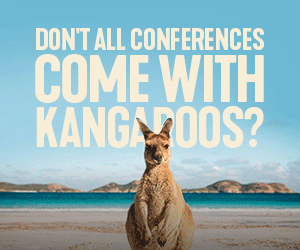Post-Coronavirus Education: It Takes a Village

We, both as kids and as adults, don’t take classes just to remember everything we are taught. We also do so to gain a broader, deeper and possibly more useful perspective on who we are and what we should do with the time we have at our disposal. That’s why learning, within the best circumstances, it’s a never-ending dynamic process and can feel so exciting. And why teaching is a god’s job.
The importance of transmitting a system of values is undeniable, whoever your pupils are. Just like it takes a village to raise a child, it also takes a well-functioning network of people to raise a brilliant association and a combination of efforts to raise the ideal destination. Remember: associations are precisely born to find solutions to issues experienced by a community. So, first of all, do not panic! You are ready for it.
Albert Camus was a French philosopher, author and journalist, who, as it happens, wrote The Plague, a novel that tells the story of an epidemic sweeping the French Algerian city of Oran. When he won the Nobel for Literature in 1957, he thanked his old elementary-school teacher. Winning a Nobel prize is perhaps too ambitious. However, we often encounter occasions to thank the people who helped us find the time to study, mature rather than aging and - if we are extremely lucky - learn from our mistakes.
Being such a new and bustling professional class in the job market, event planners originally came from other industries such as entertainment, hospitality or marketing and had to work their way up and self-learn on that journey. They were learning as they walked, modelling the very first principles, methodologies and practical applications of the art of organising events. Fast-forward a couple of years, we are now seeing the first generation of people entering the industry who have obtained degrees, certificates and diplomas in event and MICE management. This poses a critical question: should I invest in a formal classroom-style education or should I spend my time with relevant experience where I can learn on the job?
This new educational phase has brought a new attribute to the surface: adaptability. It is the perfect prerogative to move forward with the always complex and cross-cut theme of education that, without any doubt, will be part of the headlines of our industry in 2021. As always in these cases, the specific training of our professionals goes hand-in-hand with the new trends, disciplines and crossroads, which are intermingling with the reality of the associations. In fact, even these first diplomas that are being absorbed in the MICE labor market may run the risk of becoming obsolete, given the new demands that COVID-19 has raised.
Many instruments are at your disposal, including the long discussed virtual events. In this case, virtual means a cosy space for you and your members to talk about the development of your missions and how to achieve it. There are plenty of e-learning platforms and learning management systems, including the most famous LinkedIn and Moodle. Online learning can be even better than physical learning, allowing more people to connect flexibly from wherever they are and offering a level of personalisation otherwise impossible. Content can be more engaging too, thanks to the obvious opportunities of a computer compared to a desk in a classroom. These options would also help you use your time better as people’s attention in front of a screen is going to last even less than in person: no room for chit-chat.

Sven Bossu, CEO of the International Association of Convention Centres, has a point. "Two main trends are clear. First of all, an intensified training on everything that is related to safety and security protocols and secondly understanding the value of new technologies and models such as hybrids. Especially the latter is uncharted territory, both for venues and organisers”.
Training will not only be about understanding new technologies, but also how to include them in a new business model, both for organisers and venues. “All teams, especially the sales & marketing team, need to encapsulate the hybrid and digital offering of their venue in their value proposal,” Bossu adds. In order to do so, they need to fully understand the possibilities these technologies offer and the key focus area should actually be the data which can be collected to provide value. As a result, new roles will be created within venues, requiring new types of training.
These points are corroborated by Uta Goretzky, executive director of the International Federation of Exhibition & Event Services: “We have to adapt to formats like pandemic safe exhibitions and events as well as new challenges due to hybrid and virtual formats. Here we need new vocational formats, since these requirements are completely new for our industry.”
There is a need for ongoing research into event management, so that course development and training requirements can be further improved to meet the current and future needs. No surprise that the online learning platform software market is booming worldwide and is anticipated to grow over the forecast period 2020-2025.
Safety planning will be another attraction that will reign over the associations' courses and workshops, swinging around the common interests of event destinations. It has never been as important as it is now to educate people on the topics of hygiene and prevention. Everyone among associations, events’ organisers and destinations’ managers is exploring social and behavioural change as an effect of the current crisis. Rules often arrive from governments and local authorities, but it can be very much up to the MICE professionals to find the ideal system. A whole bunch of new processes are requested in order to plan, implement, manage and assess health education interventions.
Last but not least, do not undervalue diversity and inclusion. The business case for it is stronger than ever. According to a report from McKinsey & Company, “the business case for both gender diversity and ethnic and cultural diversity in corporate leadership continues to strengthen.” The most diverse companies are now more likely than ever to outperform less diverse peers on profitability. This can be explained by several reasons but there is one that stands out: building a true society of nations and individualities within your board or executive team promotes innovation, different perspectives on how to tackle on a business (or bid) and a simulation of the society itself, your customer base and the changes to make before everyone else. Companies and agencies need a systematic, business-led approach to inclusion and diversity, as well as bolder actions on inclusion.
Other Articles
About Us
Supported by the Union of International Associations (UIA), the International Association of Professional Congress Organisers (IAPCO) and the Interel Group, the global public affairs and association management consultancy, Headquarters Magazines serve the needs of international associations organising worldwide congresses.















